Hello guys and welcome!
In this guide, we will talk about the ways on how to get a .eth domain name for our ETH addresses, what are its uses and how can we get profit from it. As this guide is for the beginners to intermediate crypto users, we will also have a short preview on DApps to better understand what ENS means.
Without further ado, let’s start!
DApps
DApps or Decentralized Apps are digital applications that run through the blockchain and sometimes through the P2P network and are outside the control of a third party or a single authority. This means that all transactions, funds and activities in the DApps are owned only by the specific user and that no third party can interfere unlike how banks operate where they can halt your activities or even remove your funds with them.
There are a lot of DApps out there. Some are used for financing, games, collectibles, gambling, governance, security, etc. Ever heard of DeFi and NFTs? These are also DApps. In fact, Trust Wallet is a decentralized app as well!
Now that we know what DApps are, we can proceed on getting ourselves our own ethereum name.

What is ENS?
ENS or Ethereum Name Service is a DApp that allows users to shorten their long Ethereum addresses into a more readable format. ENS are specifically domain names that are based from the Ethereum network and smart contracts. Simply, ENS is the blockchain version of Domain Name Service(DNS) but cheaper and has more uses.
ENS is great because it is not only limited to be used on our Ethereum addresses but also as the domain name of our websites. Instead of .com or .org, we can instead use .eth which is way more appealing and uhmmm…cool!
Still confused? Basically, ENS is that fancy .eth name you see a lot on websites and twitter like for example the ENS of Vitalik Buterin, Ethereum co-founder.
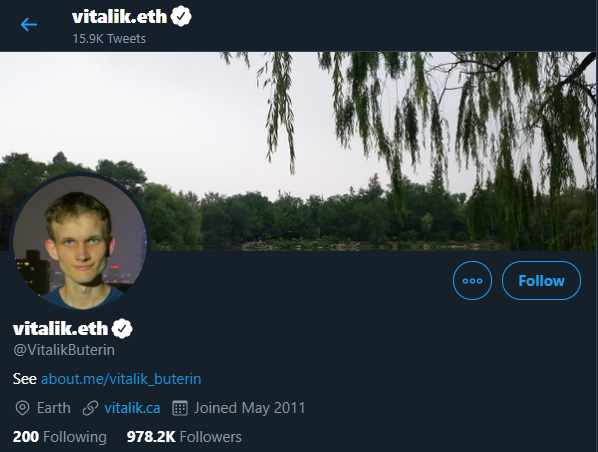
The idea in this is that instead of typing long hexadecimal addresses, we can just type yourname.eth. This can be used for sending funds, interacting with smart contracts and even through Ethereum DeFi DApps like claiming UNI in Uniswap. Additionally, ENS is also a good way to increase profits as we can register them as low as 0.01 ETH and then later sell it at 1 or even 100 ETH depending on the rarity of the name.
Where can I register an eth domain?
We can register our own eth domain through https://ens.domains/ and establishing a web3 connection from our Ethereum wallet and Trust Wallet app made it simpler.
-
Open the app and go to the DApps browser.
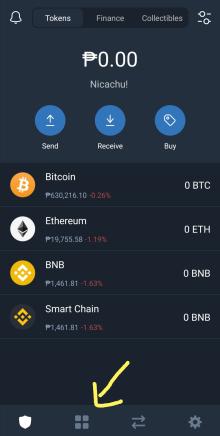
-
Next, we have to access the Ethereum Name Service DApp. As we are using Trust Wallet, it will automatically establish a web3 connection. Just make sure to check that the ETH address you want to be ENSified is correct.
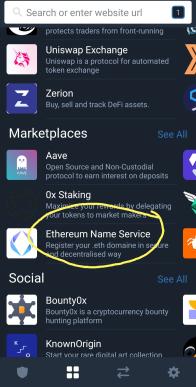
-
We will be redirected to ens.domains registration page. Unfortunately, Binance Smart Chain is not yet integrated so make sure that Ethereum is selected. Then, enter desired name on the box and enter. If your desired name is already taken, you can buy it at an auction such as https://enslisting.com/ or just think of a new one.
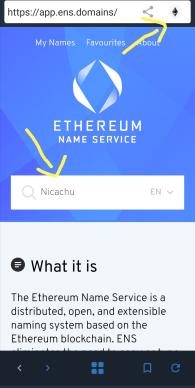
-
Select the lifespan of your domain name. The lifespan is the time you have ownership or access to the ENS domain. Remember that you can renew lifespan anytime. You can own an eth domain for a year for only 0.012 ETH(~$5) or even 10 years for 0.123 ETH(~$50). This is way cheaper than the 2-year premium plans from DNS providers.
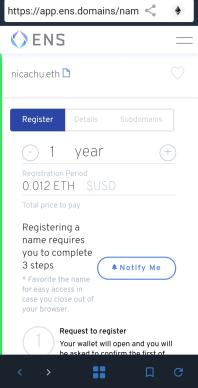
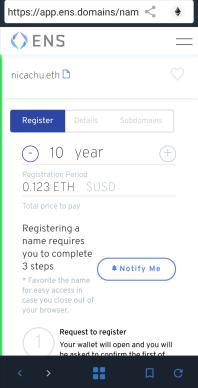
-
Click Register, wait for the confirmation window from Trust wallet and confirm payment.
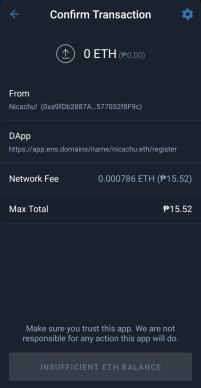
-
Congrats! You now have your own eth domain. You can use it as your recipient address rather than the 0x address or claim your UNI token, if any and many more!
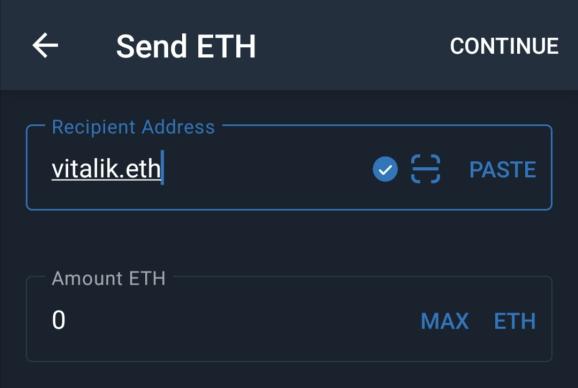
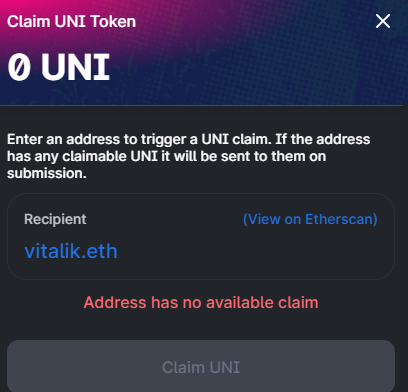
Final Thoughts
ENS are very useful in our activities and interactions with the Ethereum network. It saves us the time to type in long addresses without compromising the security of our funds. It also allows us to show ownership of the address and can even be used as our website domains through IPFS as our host. ENS are basically NFTs with unique properties so we can also sell it for profit. Lastly, we have to admit that having .eth beside our brands and names is actually very cool!
If given the chance, I’ll make more guides and articles about hosting our website through ENS and IPFS and a lot more interesting things users may not know of. Thanks for reading!